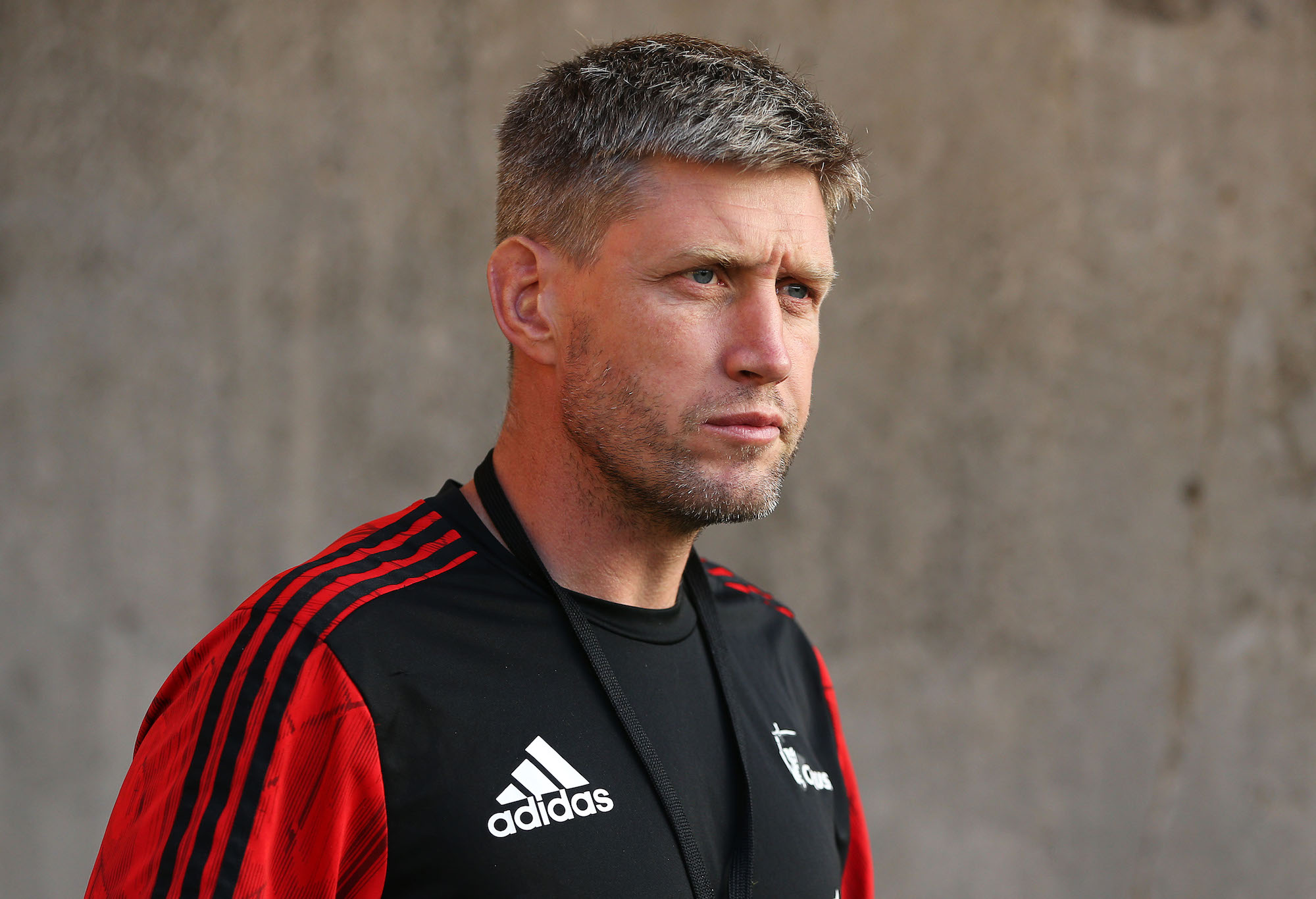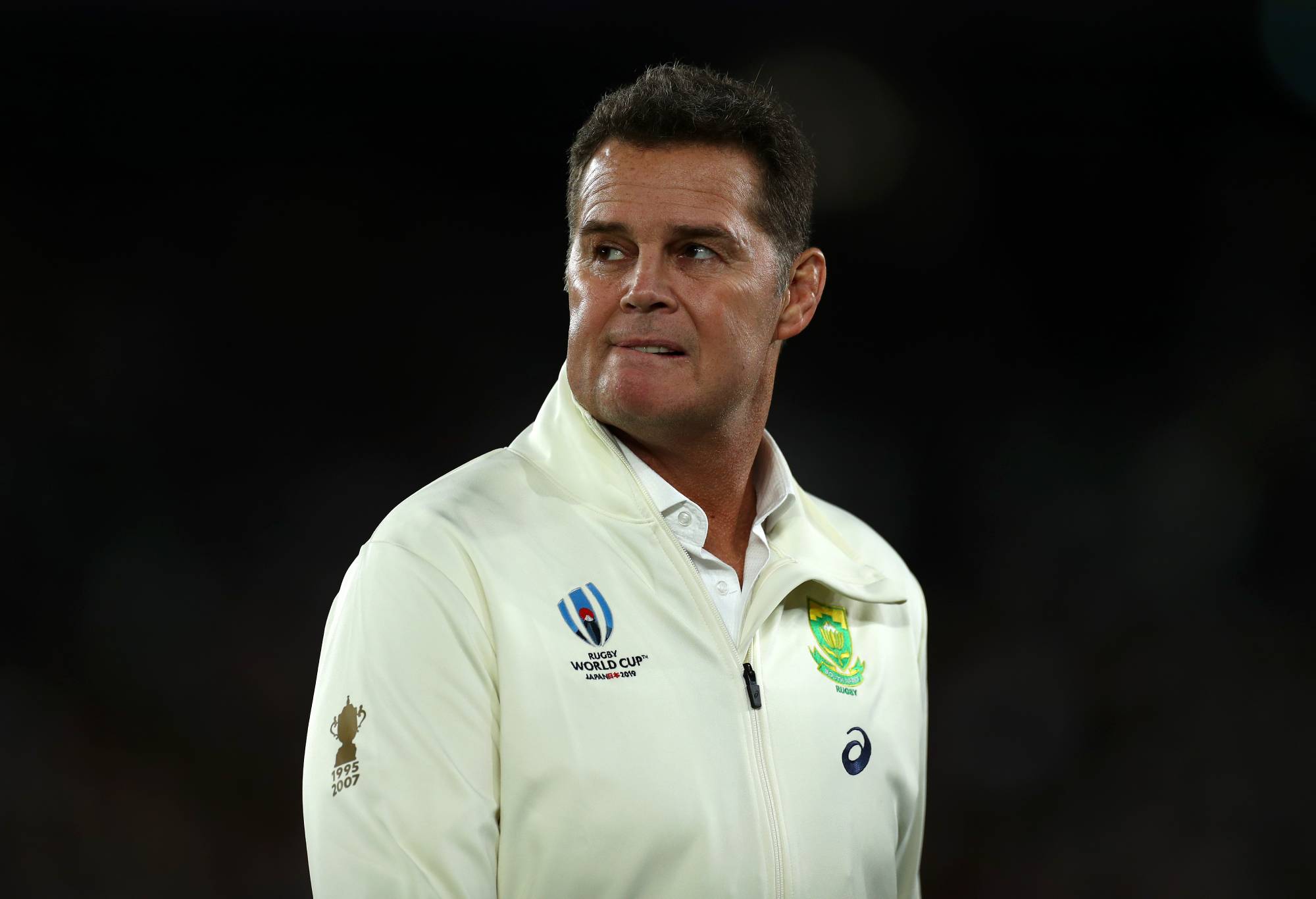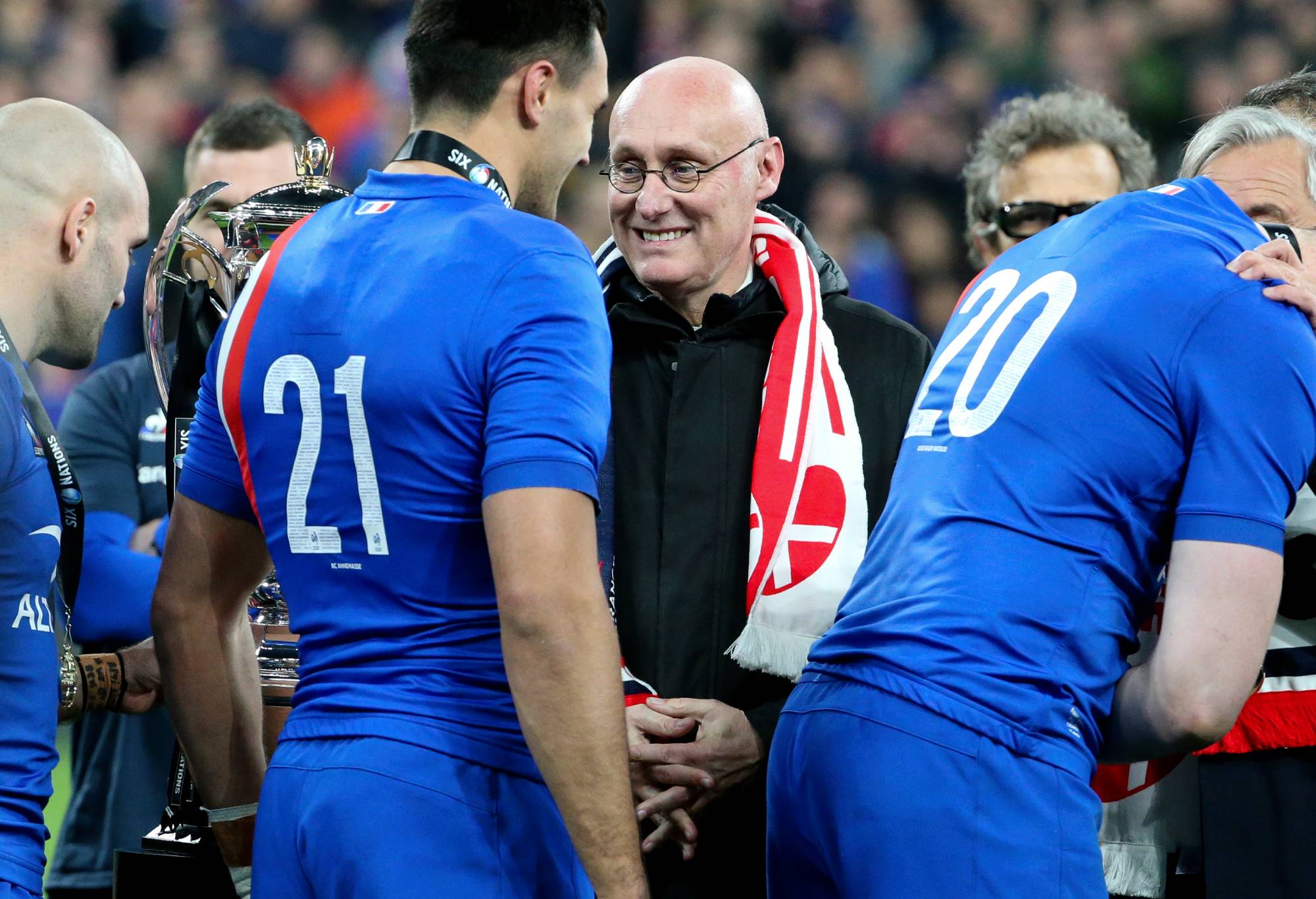NEW YORK CITY – If Australian show business had a Giteau Law, which four entertainers would make the list?
Hugh Jackman may be the Rob Simmons of Broadway. He can sing a vibrato, but not powerfully. He dances more nimbly than a man his size should. His acting is amiable; deceptively good in the set piece but perhaps lacking in range. Perhaps he is a given, and cannot be taken seriously?
Watching him grin, chuckle and strut across the Winter Garden stage this week, in Music Man, a drama set in a sort of American Queensland, in which adults must choose which lies, which mythology, they will swallow in the name of a greater joy.
Jackman’s charming character, ‘Professor’ Harold Hill, a flimflam artist, bamboozles a sleepy, staid town in Iowa cornfields, but cannot escape a final accounting.
His corruption fails and succeeds because his love of the game overcomes his habits as a player. Rather than being tarred and feathered, Professor Hill found a home, forgiveness, and meaning.
Four charismatic rugby men found themselves in trouble in 2022 and met a spectrum of justice. Their fates rested largely on what we wanted to believe in.
Nobody can deny Irish fly half legend Ronan O’Gara, French power broker Bernard Laporte, South African rugby rebel Rassie Erasmus and that media-baiting Aussie rascal Eddie Jones have a deep and abiding love of rugby union. Rugby runs in their bones.
Three-time Lion and 128-cap O’Gara may end up being an even better coach than player. He has a deep understanding of shape on a field, even if he was not a great defender himself, is a bit of the Pied Piper with players, and enjoys working with discards.

Ronan O’Gara . (Photo by Hagen Hopkins/Getty Images)
Under his quirky tutelage, even Raymond Rhule can tackle, Will Skelton can jump, and Dillyn Leyds can kick for poles.
He has made outlandish promises and delivered. He may have leapfrogged the traditional coach’s pilgrimage by being parachuted into Camp Crusader.
The shrouded secrets of the most successful club in the world of rugby now reside in O’Gara’s head. He is telling his own story on the Bay of Biscay.
His five kids will know a big life, having had Irish, French and Kiwi stages, and depending on next year’s results, a stint in London to finish their schooling.
As O’Gara’s star has risen, his Irish ire at the slipshod standard of reffing and review of refs has also soared. He does not embrace excuses in his teams or his own life; the stuffy officiating establishment infuriates him with its old school combination of public schoolmaster omniscience and private formalistic apologies.
Would much of what he has said be perfectly reasonable on stage or in court or on the floor of a legislative assembly? Sure.
But rugby is yet to make its way fully to the professional dance floor and performance art is not welcomed in try celebration, press conference, or even on social media. O’Gara is not your father’s coach.
After a rough relationship got rougher, the French league fined him about a quarter of his salary and banned him for a crucial ten-week stretch for violating article 714: remarks likely to infringe on the image, reputation or interests of rugby or its bodies, any breach of ethics and sports.
Always the consummate pro, and a wonderful interview due to his candor, O’Gara says he will tone it down, but clearly believes he is both right on the substance, but also on the tone, as he belongs to the school of thought which believes the level of elite rugby has surpassed the skill and rigor of referee administration.
To be clear, he is not a ref-basher. He believes ref oversight is arbitrary and capricious, and refs are set up to fail due to poor standards.
Bok bad boy Rassie Erasmus and unchastened O’Gara have more than loquacity, long bans, player loyalty and showmanship in common.
They are maniacal competitors and blunt force innovators. Not just with exotic lineout calls or a big-fetch-wing box kick chase: they mean to transform rugby into a bigger sport with a bigger footprint, but somehow avoiding the corruption of football and boxing, and the attractive nuisance of syndicate’s focus on fixing results in sports with refs who can operate with impunity or incompetence.
Rugby has boxing’s insider class, Brahmin castes, potential for dirty money, and the ability to count to ten slow or fast, but not to undo the result.

(Photo by Clive Rose – World Rugby/World Rugby via Getty Images)
Its older, richer cousin, soccer, has long ago made its deal with the devil, but as a simpler game that turns on fewer subjective or flawed observations by refs, gives rugby less of a lesson in on field decisions and more of a template for club ruling country.
O’Gara and Erasmus are also too smart for their own good.
This year, as the engrossing end of year tours beckoned, Erasmus had just served out his agreed sentence for brutally and impolitely exposing an admitted 13 material errors by a referee in the first Test of the British and Irish Lions tour of South Africa. Impolite because he predictably cherry picked only the 20 plus errors which went against his team, knowing the ref had already admitted to 13 of the 20-plus, and realising World Rugby would never open Pandora’s box kick by detailing the six or seven material errors which favoured the Boks because this would essentially prove Erasmus’ point anyway.
He had bullied them into a corner but put himself in the dock.
World Rugby is not prepared to pull back the curtain and tell us what error rate, in the match circumstances (and a Lions-Boks series is perhaps the toughest to adjudicate) is poor, okay, good and great, and slot refs in bands accordingly. Perhaps they will one day, but they will not do it by force of one cocky coach.
Brutal it was because he set in motion a firestorm which the ref was not equipped to handle, because it made things nasty and personal, because it largely worked, and because it was sarcastic and childish in its execution; rugby sees itself as higher and better than that.
Now, let’s not be children. The ref works as a ref still and no physical harm befell him. It appears his error rate is falling.
What’s the worst Rassie did? He departed from very old norms of etiquette and process, imputing incompetence to an appointed ref. More vitally, he did not merely throw off a bitter line after a match (“we played against 16”); he went through a carefully chosen and detailed case for poor refereeing. This crossed a very important line in rugby.
So, after a cheeky ‘apology’ set the rather insincere deal in motion, and the time had been served, Erasmus was never going to be judged as a first time offender when he posted a few side-by-side 2022 Tweets of irregularities in the narrow French win over the Boks in Marseille.
One would guess a plurality of rugby wanted a longer ban of Erasmus (for mixed reasons, of course; we are not kids) and thus, if he even sneezed on a ref, he could expect another hiding.
The establishment does know how to protect itself, in the end. A horrendous Tweet threatening unforgivable violence against that Test’s ref’s family surfaced and whilst it would be unlikely that another coach would be saddled with that derivative blame, many did make the leap to “Tweet about a forward pass causes Tweet about actual crime.”
Without a doubt, Erasmus was snot-nosed. World Rugby acted swifter, armed with more absolute tools, and also annexed Erasmus by welcoming him to help them fashion better protocols for ref review. In so doing, they tacitly admitted something must change: why select him, of all people, for God’s sake?
If O’Gara and Erasmus were banned and sort of brought to heel, Laporte exists in purgatory.
Laporte led French rugby to the pinnacle of success: a surprise dark horse World Cup at home with generational talent in place.
He was number two in World Rugby, the running mate of chieftain Bill Beaumont, the insider’s insider; presumably he was his hand-picked successor.
Having seen off the younger Erasmus-backed disrupter Gus Pichot, the Beaumont-Laporte ticket promised quiet, steady hands.
But Laporte’s hand was in the till.
He has been convicted in a real court, a criminal court in Paris, of corrupting rugby. His fines and bans are actually appealable (this is what makes his case a true case) but even if he were to reverse the conviction by finding a flaw, the underlying facts (pay-to-play influence payments by mega sponsor Mohed Altrad) are admitted, and Laporte and his circle have brought immense disrepute upon the game of rugby as well as the crown jewel of Test competition.
Laporte was the second most powerful man in rugby. He perverted his role to benefit a friend, a club, and French rugby.
His handpicked aide de camp has also been found guilty and was summarily fired by the planning committee for the Rugby World Cup. His friend Altrad is convicted, too.

Bernard Laporte. (Photo by John Berry/Getty Images)
However, the level of outrage is low.
Even though it is obvious this sort of corruption seldom exists in a vacuum, and usually requires wider suppression, collusion, connivance or at least some awareness. Forget the incredibly high burden of proof a prosecutor must meet: an organisation cannot stay clean if the only test is “would I go to jail for it and can they prove it?”
Where is the passion of World Rugby to get to the bottom of the Laporte Affair?
In a sport deeply in debt, starving for new money, dependent on encumbered cash, trying to build even the most basic health and retirement systems, wouldn’t any dirty lucre be a prime imperative?
Who knew? When? How much?
A true, deep investigation is a must. The appearance of impropriety is already clear. What is unclear is whether we and World Rugby care, and who else was involved in shady dealings.
If we do not take this moment to clean house, we will find ourselves in a world of trouble.
Finally, Eddie Jones could be the Music Man. When Jackman steps down, Jones should step up.
Yes, he can dance. Yes, he can sing a lovely tune. But Twickenham was ready to run him out on a rail with chicken feathers all over his tarred head.
The boos got him. The loud chorus of approbation by devout, hymn-singing fans shelling out four hundred quid and more for a day of miserly misery. They spoke.
Not the media, who had failed to hold him to account, as many of them were in thrall to his lovely pattered patina of prose. Not the players, who wanted his praise. Not the board, which had extended his deal into the worst Six Nations finishes in history without real review. The crowd.
Just like O’Gara and Erasmus, Jones knows how to coach. Is he better than them, now? Maybe not. With a big pack, he could have continued to beat Australia, trouble New Zealand and make a semifinal. But one senses the game has moved beyond Jones and he will need time and space to reflect on that and refresh his dogma and doctrines.
Who would bet against the canny Randwick man, if he can return with a more streamlined role or with the benefit of a breather?
Jones is a serious operator, but in search of a more modern way of dealing with stakeholders.
This year, O’Gara, Erasmus, Laporte, Jones received their comeuppance. Jones was paid handsomely to exit. Laporte is still vaguely protected, pending his appeal. His circle remains in the highest halls of rugby power.
Erasmus has been invited to become part of World Rugby’s solution matrix. O’Gara is one of the two most sought out coaches for 2024 and beyond. The last two are vehement about the need to improve officiating, even if their loyalties make them prejudiced.
Jones will be fine. He is always fine: a new adventure awaits. A new rugby liturgy; shifting metrics.
But why is the world of rugby so quiet about corruption? Why does it feel like Laporte’s legion is confident of its hold on the reputation of rugby.
What is rugby’s reputation? What would we like it to be?































































































